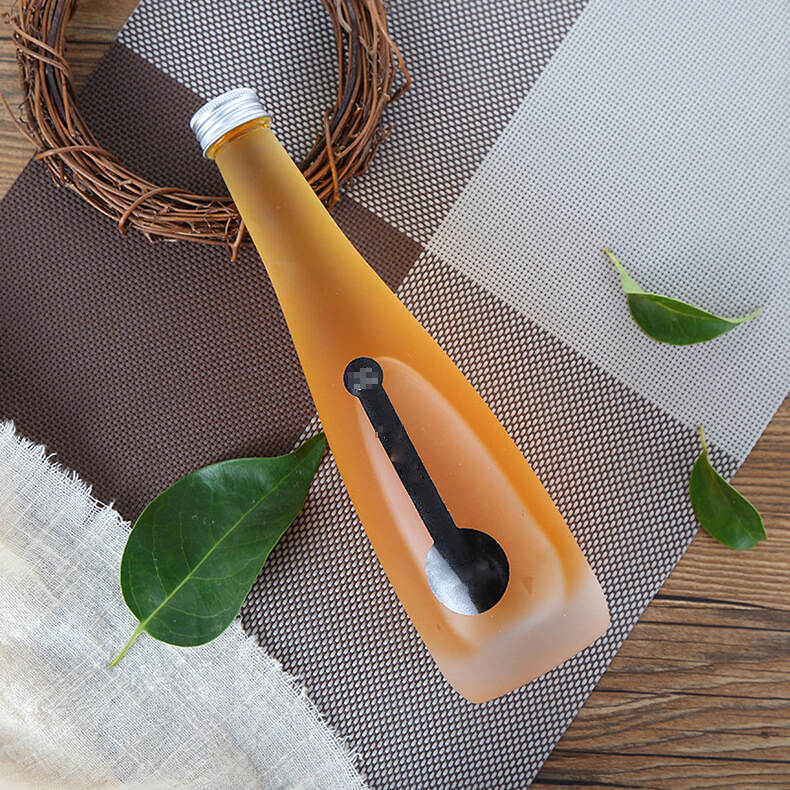Email cannot be empty
Password cannot be empty
Email format error
Email cannot be empty
Email already exists
6-20 characters(letters plus numbers only)
The password is inconsistent
Email format error
Email cannot be empty
Email does not exist
6-20 characters(letters plus numbers only)
The password is inconsistent


In the realm of antique treasures, 1L vintage clear juice milk glass bottles possess a distinct allure, each bottle weaving a tale of days long past. Safeguarding and unraveling the mysteries of these artifacts necessitate a delicate touch, blending an appreciation for history with pragmatic care. This article delves into the nuances of maintaining and restoring these glass gems, exploring the challenges encountered, techniques for authentic identification, and the fascinating history of glass bottle manufacturing.
Let us embark on an exploration of the imperative nature of preserving and restoring vintage glass bottles. These vessels not only serve as witnesses to history but also stand as art pieces, encapsulating the craftsmanship and design of bygone eras. Ensuring their longevity is not merely an act of reverence for the past but a continuation of cultural heritage.
When cleaning vintage glass bottles, the choice of a mild cleaning agent is paramount. Steering clear of corrosive substances prevents harm to the bottle's surface. Experimenting with gentle detergents and soft brushes aids in wiping away surface stains without inflicting further wear and tear.
To guarantee the prolonged preservation of vintage glass bottles, appropriate storage conditions are crucial. Opt for a dry, sunlight-avoidant location to prevent the fading of colors and surface damage. Regulate indoor temperatures to avoid adverse effects on the glass due to temperature fluctuations. Additionally, use suitable supports and packing materials to prevent collisions and abrasions between bottles.
Handling vintage glass comes with its share of challenges. Bottles may already be damaged, and markings may be obscure. Exercise caution during cleaning and handling to avoid exacerbating existing issues. Furthermore, when dealing with bottles adorned with unique decorations or markings, particular attention should be paid to preserving these elements, as they could be key factors in determining the bottle's value.

To truly comprehend the value of a vintage glass bottle, familiarity with its features and marks is crucial. This may encompass manufacturer logos, inscriptions on the bottle's base, or even distinctive shapes and decorations. These elements provide clues aiding in the determination of the bottle's manufacturing year and origin.
Similar to preserving antique glass bottles, the techniques for cleaning and preserving vintage glass bottles are equally important. Employing gentle methods for cleaning and paying special attention to any attachments on the bottle is recommended. For bottles with unique decorations, professional cleaning and restoration services may be considered to ensure optimal preservation of their original state.
The value of each antique bottle is unique and may be influenced by factors such as its preservation status, rarity, and market demand. When assessing value, all these factors should be considered to gain a comprehensive understanding.
In general, a bottle's value is influenced by various factors. Market trends, the reputation of specific manufacturers, and the historical period represented by the bottle may all impact its value. For collectors, staying informed about market trends is crucial to ensuring the value of their collections.
Understanding the history of vintage glass bottles requires a retrospective examination of the overall history of glass bottle manufacturing. The production of glass bottles dates back several centuries, reaching its pinnacle during the industrial age concerning the manufacturing of juice and beverage containers. From the earliest handcrafted techniques to modern industrial production lines, this history spans multiple periods and the evolution of manufacturing methods.
The manufacturing of glass bottles has undergone significant evolution and innovation across different periods. From initial handblown techniques to the advent of automated production lines, manufacturers continually improved their products by adopting new technologies and design trends. These changes left distinctive imprints on the shape, size, and decoration of the bottles, reflecting the societal and cultural contexts of their times.